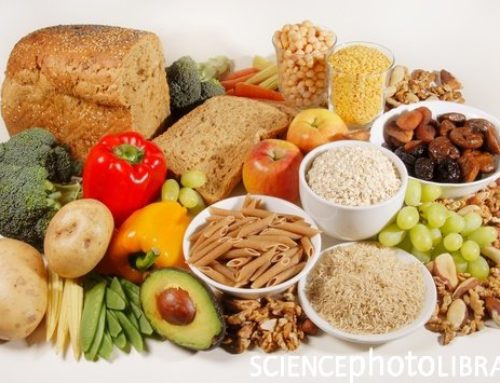An important part of what we focus on is Nutrition. “You are what you eat,” they say, and the age-old adage is true – you definitely are what you put in your mouth.
There are a few perspectives from which we can discuss this important topic, however, and the majority of which is generalized on the MACRO nutrients, namely Carbs, Fat and Protein.
Although being imperatively crucial to weight loss or weight gain, in this snippet we will discuss the underestimated importance of MICRO nutrients, vital to the health and wellbeing of every individual.
According to scientific research, the daily requirement of nutrients essential to our bodies’ health varies depending on the source. That’s why you often see slight variances on the “RDI’s” (recommended daily intake) of certain nutrients on the labeling of food products. However, there seems to be relative consistency in the authorities suggesting the body requires at least a host of minerals, vitamins, amino acids, fatty acids, probiotics, antioxidants and phytonutrients on a daily basis, all of which contribute to the overall functioning and wellness of our health.
This, then, conjures the question as to whether we receive this variety of essential nutrients on a daily basis in order to attain and maintain optimal cell functioning, a strong immune system, and overall health?
The answer to this is almost rhetorical considering the endless debate between some of those from a medical background backing the theory that our four main food groups provide us with all that we need for basic functioning (and a lifetime on drugs will do the rest) and those of a nutritional background stipulating the need for the natural spectrum of micronutrients.
With regard to the infamous “couch Potato”, whose diet consists primarily of beer and pies, there is no doubt a severe deficiency of countless nutrients and an overabundance of empty calories. Hence the ever-increasing prevalence among this population of obesity and nutrient-deficiency diseases such as Diabetes, Osteoporosis, ADD, Depression, Irritable Bowel Syndrome and Chronic Fatigue to name just a few.
The ambiguity comes from those whose diet generally reflects that of what was once regarded as “healthy” and containing plenty of the once-believed “mineralized” fruits and vegetables.
It is now widely recognized that a deficiency of nutrients in the soil that our fresh produce is grown in sequentially results in a deficiency in the produce itself. Just like WE are what we eat – our FOOD is only as good as the soil it is grown in, and scrutinizing the modern farming practices, of which our health relies so heavily upon, we can easily see some alarming statistics.
Below are a few extracts from various sources describing the current state of Australian soils. This information may help to explain why so many people who eat their fruits, vegetables, nuts and grains still suffer from nutrient deficiency diseases. Crops are only as good as the soils they are grown in. Are Australian soils really deficient in nutrients?
Mr. Robert Campbell – a West Australian farming and soil fertility consultant was quoted in the West Australian Newspaper 1 May 2000 as saying, “We are farming in probably the poorest agricultural soils in the world. That has to have some impact on the food we end up with. Our soils had always been poor and are getting worse. Most of our fresh produce comes out of the coastal strip and most of those soils are woefully deficient in minerals.”
Atlas of Australian Soils, CSIRO;
“Australia is the driest continent with no large flood plain system and low rainfall.”
“Australian soils are deficient in all nutrients.”
Dr. Ward Chesworth, Professor of Geochemistry, University of Guelph, Canada, who conducted the ‘1994 World Land Mass Study”
“Australia is the world’s poorest land-mass in micro-nutrients…”
“The last ice age left Australia without large ice masses moving over it to crush the rock and remineralise the soil.”
WA Dept of Agriculture;
“Western Australian soil is course textured with a high sand proportion which has low nutrient storage capacity, therefore soil can’t hang on to nutrients and they leach out.”
“WA is deficient in important major trace minerals.”




